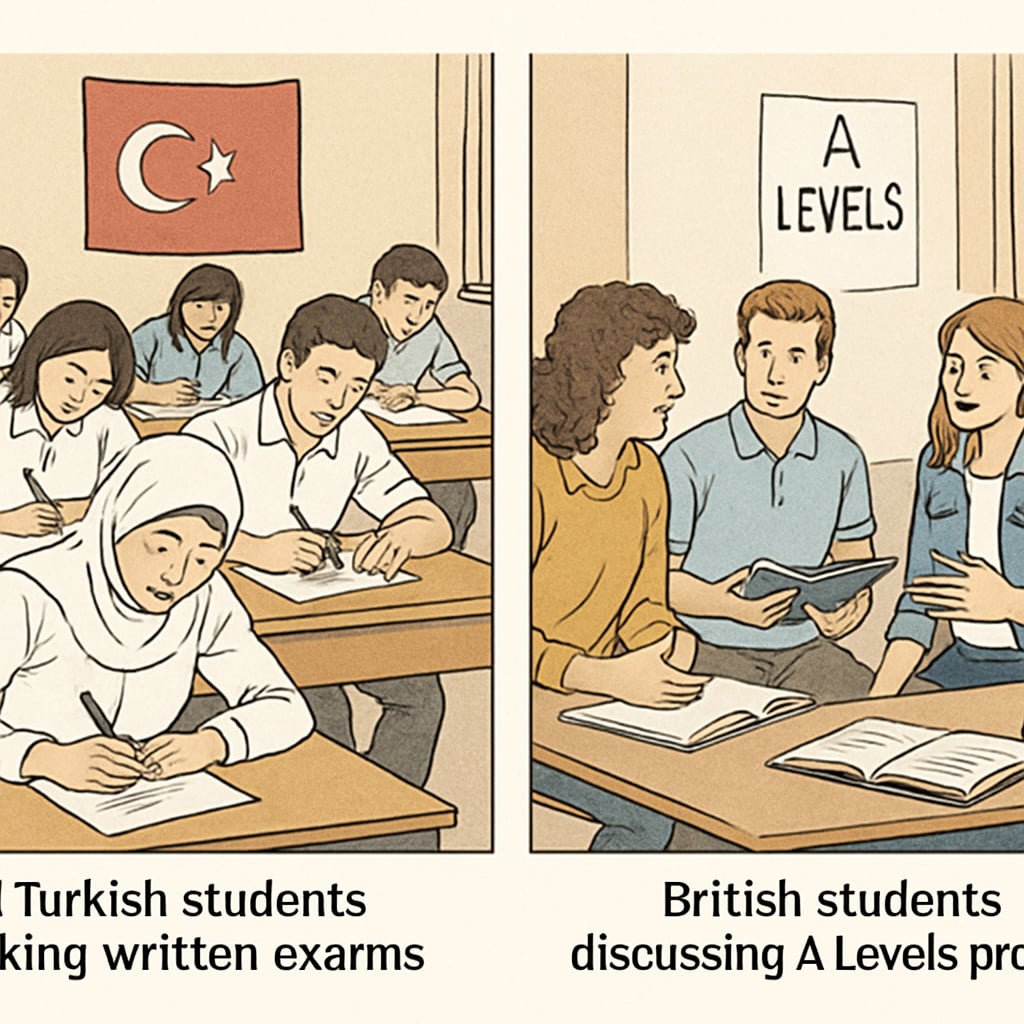The global conversation about education systems, A Levels, exam pressure, and student motivation reveals stark contrasts between test-centric models and flexible learning approaches. Turkey’s rigid examination structure and Britain’s A Levels system represent two fundamentally different philosophies of education.

The High-Stakes Testing Trap in Turkish Education
Turkey’s education system revolves around two pivotal exams: the LGS (High School Entrance Exam) and TYT/AYT (University Entrance Exam). These standardized tests create:
- Extreme pressure starting from primary school
- Narrow focus on test-taking strategies over deep learning
- Limited development of critical thinking skills
According to OECD reports, this system leads to high stress levels and reduced creativity among students.
A Levels: Britain’s Approach to Subject Specialization
In contrast, the UK’s A Levels system emphasizes:
- Choice of 3-4 subjects based on student interest
- Depth over breadth in subject knowledge
- Continuous assessment alongside final exams

Psychological Impacts on Student Motivation
Research shows Turkish students experience:
- 67% report severe test anxiety (Turkish Psychological Association)
- Declining interest in learning as exam pressure increases
Meanwhile, A Levels students demonstrate:
- Higher intrinsic motivation due to subject choice
- Better long-term retention of learned material
Pathways to Meaningful Educational Reform
Potential improvements for test-heavy systems include:
- Incorporating subject choice earlier in secondary education
- Balancing exams with project-based assessments
- Providing better career guidance alongside academics
Readability guidance: The article maintains short paragraphs with transition words like “however,” “meanwhile,” and “in contrast.” Lists simplify complex comparisons, while active voice ensures clarity.


